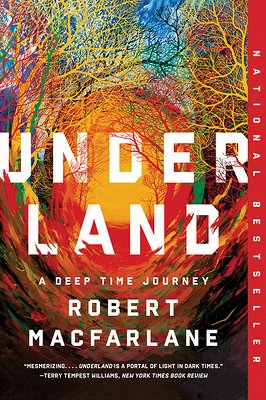Underland: A Deep Time Journey by Robert MacFarlane Published: 2020 Read from: 22 Jun to 17 Jul My rating: 🌟 🌟 🌟 🌟 🌟
Robert MacFarlane’s previous book, The Old Ways, I read in partial preparation for a long walk on one of the old ways, which has yet to materialise. Underland, on the other hand, informs me of journeys I will never make. Extreme cold, cramped passageways, far-off places — all of which become, in his hands, so much more than the thing alone. Visiting the city beneath the city of Paris, for example, which I knew only therough the Netflix show Lupin, was like being shown around by an expert guide, as indeed MacFarlane’s guide showed him around. A tour of some force. It wasn’t until the end of that chapter that I paused to note that not once were bodily needs other than food mentioned. MacFarlane is as good an editor as he is a creator, leaving out much that does not help tell his stories, although I still long to know the truth of the matter.
There is so much in this book that will stay with me. The entire Greenland section, the climate emergency brought home so directly. The original limestone karst above Trieste, which hides so much human hatred and reprisal that few people care to know about. Mendip, so close to where I was once so happy and of which, below ground, I was so ignorant. The underground vaults that Finland and the US are preparing to receive radioactive waste, with a veiled suggestion that we might perhaps have been able to avoid the worst of the greenhouse effect that permeates so many of the other stories. Tramping above ground through Epping Forest, the better to understand how, beneath the surface, the individual trees are all interconnected through fungal thoroughfares. And finally, the walk in the woods with his young son, which gives MacFarlane the chance to gather all his threads together, in case we had failed to do so for ourselves, and show us how the underlands are connected to one another and to the world above.
Wondrous.
Webmentions
Webmentions
Webmentions allow conversations across the web, based on a web standard. They are a powerful building block for the decentralized social web.
If you write something on your own site that links to this post, you can send me a Webmention by putting your post's URL in here:

Comments